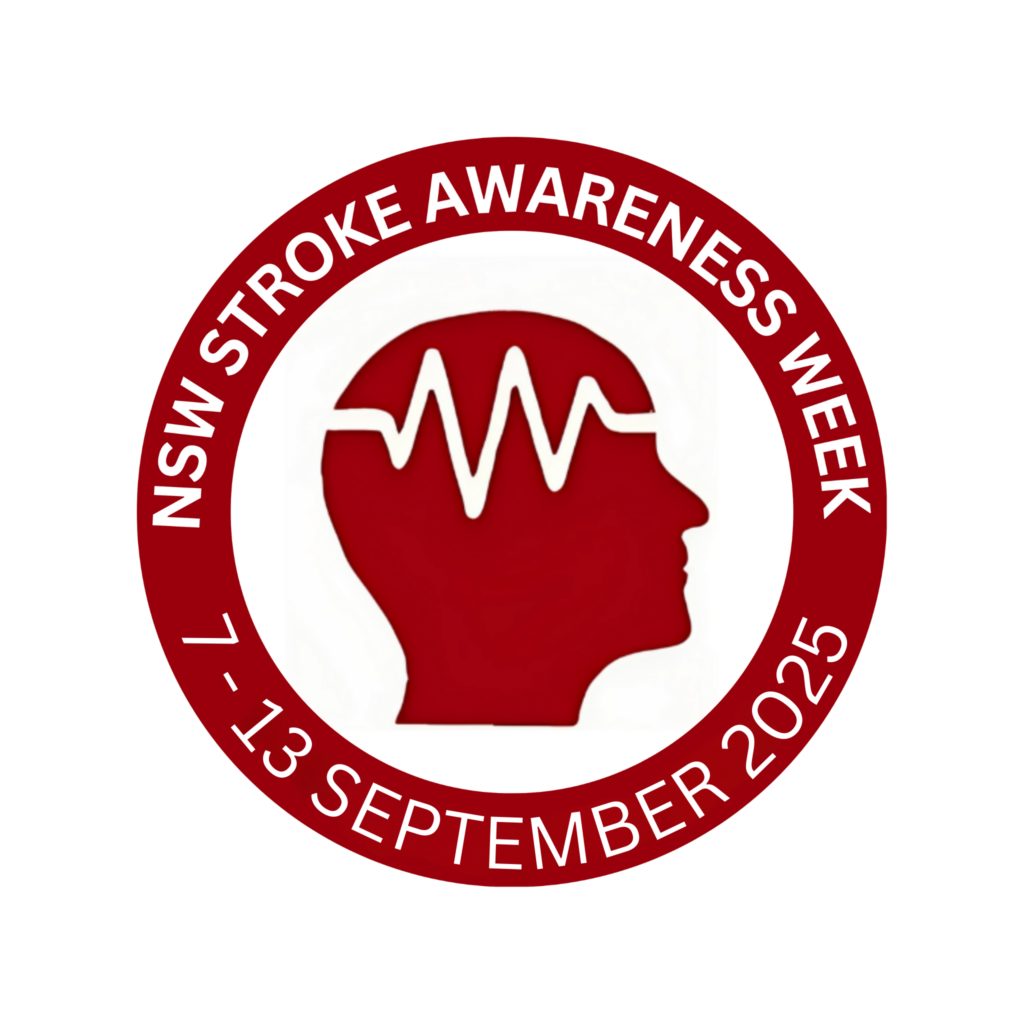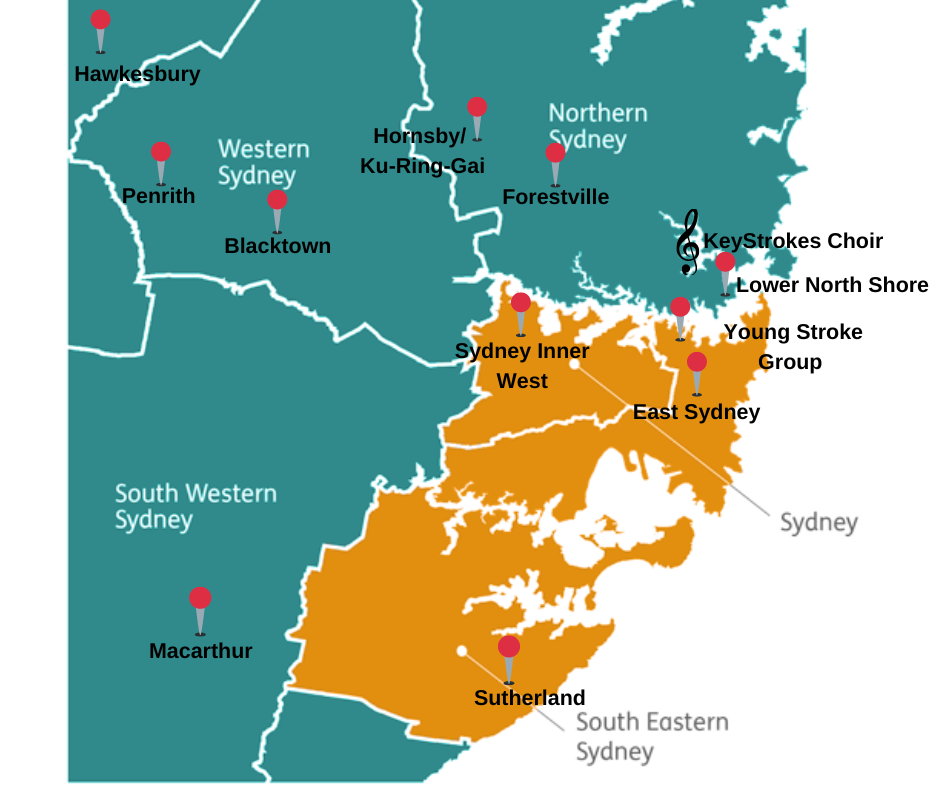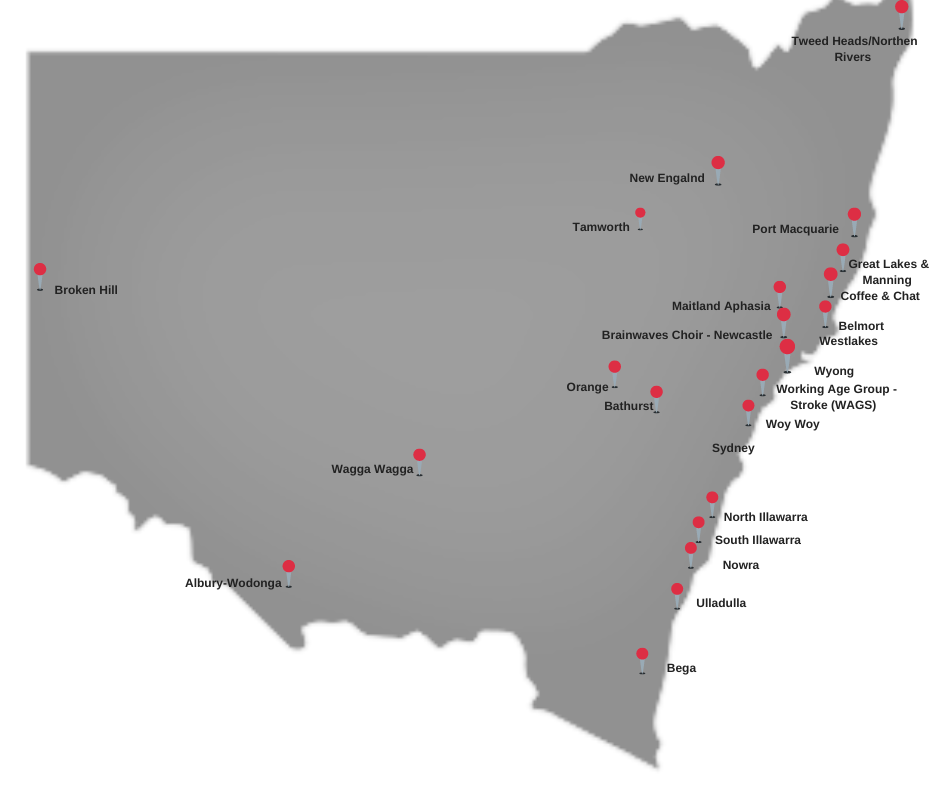NSW Stroke Awareness Week 2025

NSW Stroke Awareness Week is held annually as a follow-up to National Stroke Week, with an aim to increase awareness of recovery after Stroke and to celebrate the achievements of the many survivors of Stroke and their carers/families living in the community.
NSW Stroke Awareness Week 2025 will run from 7th – 13th September, with several events planned throughout NSW; there is a way for everyone to get involved!
For over 45 years, the Stroke Recovery Association NSW has been offering a range of services to those who have experienced Stroke, their families and carers. Assisting them to “Survive, Recover and Thrive” their lives after experiencing Stroke – an ongoing theme of NSW Stroke Awareness Week.
Stroke of a Pen
View our collection of Stroke stories and poems from our 2025 Launch. If you would like to request a printed copy please email admin@strokensw.org.au
Watch the Highlights from Stroke Awareness Week 2024
About the Stroke Recovery Association NSW
The Stroke Recovery Association aims to maximise the recovery of individuals who have experienced a Stroke and reduce the impact on their family/carers and the community. The Association is a focal point for information about Stroke recovery and prevention that focus on the following areas:
- Stroke recovery and support
- Stroke planning and development
- Stroke awareness and risk minimisation
Increase the community’s knowledge and awareness of Stroke, its causes, risk minimisation and recovery.
Our services
Stroke Recovery Club/group/choirs
Since 1977, The Association has played a significant role in the recovery and support of many Stroke survivors and assisted in developing policy and best practices. It has also assisted in establishing over 40 Stroke Recovery Clubs/groups, 4 Stroke Choirs and offers a range of online Stroke support groups to survivors and carers throughout NSW.
Are you looking for a Stroke Club/group or Choir near you? Visit https://strokensw.org.au/stroke_clubs/ or call us on 1300 650 594.


Online Stroke support groups
Not sure you can make it to a face-to-face support Club/group/choir? Why not join us online? There’s an online support group running from Monday to Friday most days of the week. These range from interest groups, such as the gardening and movie groups, to cognitive skills training sessions like trivia and memory groups, to other online sessions that have an Aphasia-friendly focus. We aim to build stronger communities online to tackle location disadvantages for Stroke survivors and carers.
Check out our upcoming online events at https://strokensw.org.au/events/category/online-events/month/
Telephone Counselling
All staff at the Stroke Recovery Association have undertaken the Lifeline Accidental Counsellor course. They are well equipped with the skills to support you during your recovery journey. Call us on 1300 650 594 Monday to Friday from 9 am to 5 pm.
Research and Advocacy
The Stroke Recovery Association is focused on research and advocacy to promote Stroke awareness and ensure that community members have access to the latest information. We use members’ lived experiences to advocate for change in the NSW health system, creating better links, care and support for Stroke survivors, carers and their networks.
Best practice information
The SRA is a source of information about Stroke, support and treatments. We have 50+ information sheets to help support Stroke survivors and the community navigate their recovery journey. Club News and Stroke Recovery News are released quarterly to update the community on important and related issues to support continuous quality of life.
You can also click below to watch conference presentations and other videos on our YouTube Channel
Yearly events
Our focus is on social inclusion for the best quality of life post Stroke. The Stroke Recovery Association host several events throughout the year that focus on supporting access to information, health and overall holistic development of Stroke survivors, carers and the wider community.
- Stroke Olympics (Sydney and Hunter region)
- Conferences
- Combined Clubs morning tea
- Annual General Meeting
- Combined Clubs picnic
- NSW Stroke Awareness Week Launch
Check out our events page for the latest information at https://strokensw.org.au/events/.
History of Stroke Awareness Week NSW
- 1981 – First Recorded date for Stroke Awareness week.
- The week began with a Stroke Conference in what was then called “The Year of the Disabled”.
- The original aim was ‘to raise awareness of Stroke’ within the community.
- It then developed in to a fundraiser with a lunch being organised to raise awareness of Stroke in the community.
- 1985 – Peggy Limb, Bobby Limb and Dawn Lake were Patrons of the Association. It was through their personal organisation, that they invited Patricia Neal, a well known English Actor who had had a Stroke, to come to Australia as a guest of the Association, during Stroke Awareness Week.
- Fundraising focus and managed to gain a considerable amount of sponsorship from Qantas and Westpac.
- 1997 – Stroke Awareness Week Conferences resumed, with Linda Glanfield, then the Stroke CNC at Royal Rehab, and Brian Zeman whose aim was to engage with Stroke Survivors to ensure further education about their Stroke and how to prevent a second Stroke.
- 2007 – The focus of Stroke Awareness Week changed from only highlighting how to prevent a Stroke to a celebration of the achievements of Stroke Survivors. As well as an acknowledgement of the collaborative partnership between the Association and NSW Health Stroke Units.
- Our focus broadened to incorporate both a Stroke Awareness Week launch and the Creating Connections Stroke Conference annually.
- Important partners in this process have been the Stroke Network at the Sydney Local Health District and a succession of Governors of NSW who have opened their beautiful home to many a Morning Tea or a lovely evening Cocktail Party.
- 2009 – The beginning of the Tartan Ribbon Campaign.
- The idea of the Tartan Ribbon was developed from the then Director of Stroke Services for the Northern Sydney Local Health District – the indomitable Professor Kate Story.
- 2020 – The Creating Connections Stroke Conference was continued annually, until COVID-19 resulted in the cancellation of the event in 2020.
- 2021 – The Creating Connections Stroke Conference was held entirely online for the first time. This expanded our reach to members, health professionals and students in rural and remote areas from around the state.
